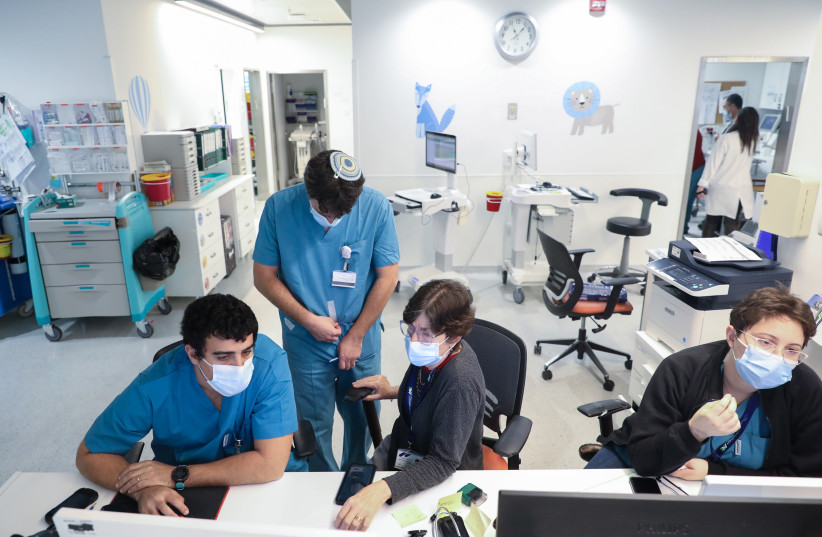Health crisis in Israel: War taking toll on Israelis’ wellness
According to the latest survey of Maccabi Healthcare Services, the proportion of Israelis who view their health condition as average or poor has increased by more than 100% compared to the period before October 7.
Fully 35% of adults who are insured by the country’s second-largest health fund who suffer from chronic diseases reported a feeling of worsening of their disease. In addition, Maccabi reported an increase of more than 150% in those who reported a moderate or poor mental state compared to the period before the war.
The survey was conducted at the end of March among a representative sample of over 1,000 Israelis from all over the country, members of all health insurance funds, aged 20 to 75.
There has been a 25% decrease in the number of Israelis who testify that their health is excellent or very good. Before the war, 61% of the public said that their health condition in general was very good or excellent, and only eight percent said it was moderate or poor. Now, the new Maccabi survey shows that only 46% of the public reports a very good or excellent health condition, and 17% reports a moderate or poor health condition.
Every fourth Israeli admitted that they felt a need to receive psychological help from professionals, while 50% said that they sleep less well than before October 7. There has also been a drop of 20% in adults who follow a healthful lifestyle.

Women view their health more negatively than men
Only 41% of women judged their health as excellent or very good compared to 51% of men, while 36% of women indicated a change in their health condition for the worse compared to 23% of men. Younger people reported a change for the worse in their general health status – 33% in the 20 to 49 age range compared to 23% in the 50 and over age group. In addition, it can be seen that more people with incomes below the average testified to worsening chronic disease (48%) compared to those with incomes above the average (22%).
A third of the respondents who had an appointment with the doctor or a medical examination scheduled in advance reported that they canceled or postponed the appointment, and 20% reported that they gave up or postponed the performance of an important screening test such as a mammogram or colonoscopy.
Six months after the current conflict began, 37% of adults said they gained weight compared to 15% who said they lost weight. In addition, about 30% of smokers or ex-smokers indicated that following the war, they returned to smoking or increased the amount of smoking consumed.
Dr. Eran Rothman, head of the health fund’s health division, commented that “six months into the war, and the results of the health survey we conducted among the general Israeli public indicate alarming and disturbing feelings felt by Israelis about their health status. Maccabi urges the public to continue to take care of their health, to continue to go for health checks, and to pay serious attention to their psychological and physical health. Such attention will help reduce the risk of disease outbreaks and prevent unnecessary further deterioration.”





Comments are closed.